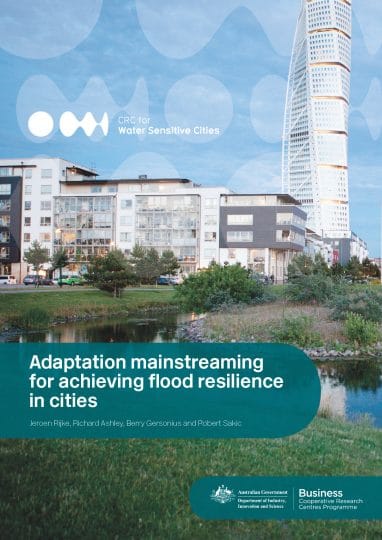New publication: Adaptation mainstreaming for achieving flood resilience in cities
Many cities across the world have started to adopt resilience approaches for flood risk management, which typically combine interventions to protect against, minimise damage from and recover efficiently after flooding.
With government budgets for enhancing urban water systems under pressure, policy makers have moved towards adopting ‘mainstreaming’ to implement resilience approaches.
Mainstreaming is the practice of integrating adaptation into decision-making across a range of policy areas, rather than by implementing standalone measures.
A new report by researchers in the CRC for Water Sensitive Cities’ (CRCWSC) project Socio-technical flood resilience in Water Sensitive Cities: Adaptation across spatial and temporal scales (Project B4.2) aims to provide guidance to policy makers, planners and project managers for implementing mainstreaming as a “means to realise flood risk management strategies as part of a water sensitive approach”.
Jeroen Rijke, Professor Richard Ashley, Dr Berry Gersonius and Robert Sakic from UNESCO-IHE Institute for Water Education provide case studies from European and US cities and explain how similar resilience approaches could be implemented in Australian cities.
